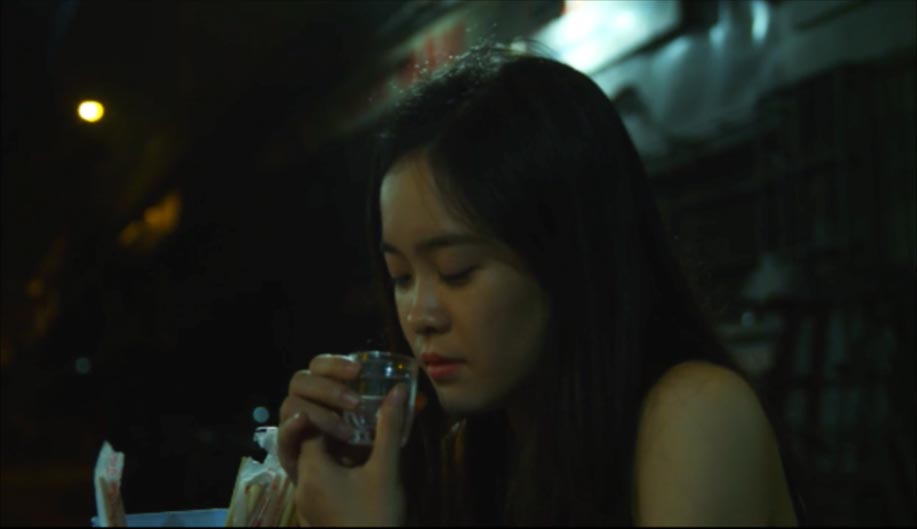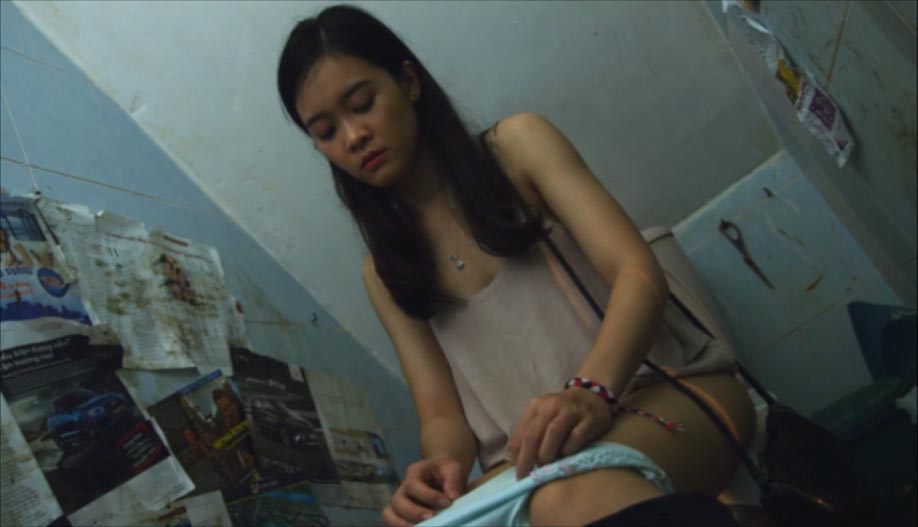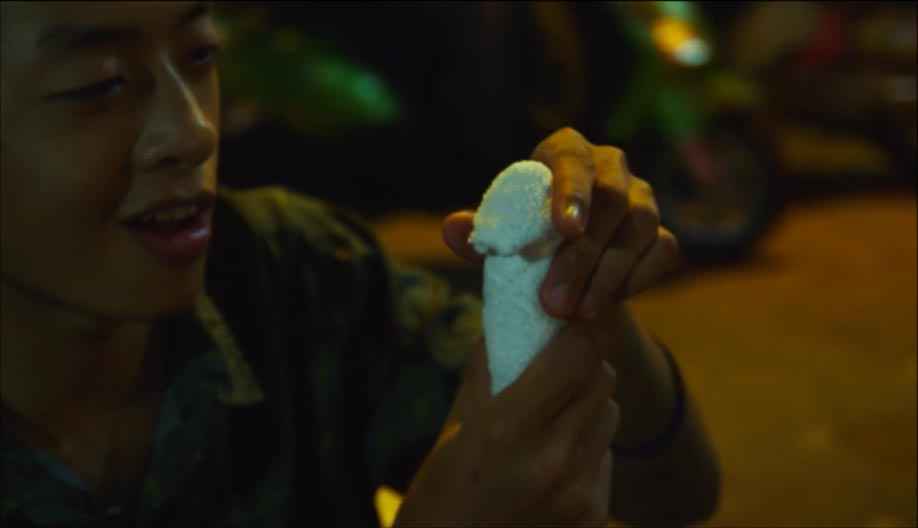Sex, Violence and Other Things
This article contains spoilers.
To define ‘ephemera’ is to describe the experience of eating ice-cream. We taste the sweetness in satisfying our cravings for something so temporal. Just like sex. Or the excitement in watching violence, real or virtual on our favorite video games. The pleasure consumed from it isn’t meant to last. It exists only in the spurt of a moment.
Ho Thanh Thao’s short film, Ephemera (Muộn), adopts this word as its title to encapsulate the main problem the protagonist faces. The protagonist, an unnamed young girl, deals with the consequences of feelings which last briefly. An unwanted pregnancy, while not explicitly stated, results from the intimacy and lust for her boyfriend. Her flirting with Mr. Thuy, the boss of a gang, results from jealousy and anger towards the boyfriend and her friend Linh. Her anger dissipates as soon as her boyfriend leaves. Her coy smile pales into an unintelligible frown as she realizes the hazardous environment she has put herself in, surrounded by an entire gang alone at night without her friends. Thus, the protagonist’s shift between emotions causes a perplexing fluidity in her emotional state, which drives her to literally flirt with danger.


Noting the film’s Vietnamese title, muộn means ‘late’ and as the film reveals at the end, the protagonist is pregnant. Though we can’t say for sure that she is, we can assume that she is ‘late’, as in her menstrual cycle. The shot of the protagonist on the toilet, peering at her underwear, is enough to reveal to viewers her anxiety in not seeing the blood that is supposed to be there. Ho quickly juxtaposes this with the next shot of the blood on Mr. Thuy’s arm, forcing us to see what the protagonist does not have. Hence, the film centers on the protagonist’s fear of being ‘late’, a label that will define her future life in the following months to come.

Ephemera delves into the topic of sexuality and explores it in relation to youth and their exploration of it. This is seen particularly in the sequence after the protagonist’s boyfriend pulls out a folded towel resembling the male genitals. The other friends get excited, cooing as they realize what it resembles, and try to snatch it from him before asking him to teach them how to fold it. While her friends treat the subject of sex casually and even trivialize it with their playful jousting of the phallic towels, the protagonist sneers in disgust. The film makes other sexual innuendoes with the subtle implying of the towel that reverses on the other side to resemble the female genitals and the beer foam that spills over the table that resembles semen. The protagonist’s disturbance at these clarifies her concern over her pregnancy. Thus, the film utilizes the exploration of sex and presents two polar responses to it, highlighting the problems of trivializing it.



Ephemera also makes violence a prevalent factor that causes apprehension for the characters. The protagonist’s friend, Quang, conveys the thrills of watching gangsters fight with exotic weapons and tattooed arms, glorifying a gang fight as an entertaining spectacle. However, as far as spectacles go, viewers enjoy it from the comfort of distance. As soon as Mr. Thuy steps in to the street side restaurant, Quang is unsettled and shifts in discomfort. The other patrons at the restaurant exchange nervous glances at Mr. Thuy and soon leave, like one evacuating from a storm. But there’s an emotional violence that viewers also witness in the film. As mentioned, the protagonist’s volatile emotions and turbulent relationship with her boyfriend convey the sense of unsettlement that pervades the film. In all, no one is to be trusted; not even one’s own feelings.

It is too simplistic to say that Ho made Ephemera as a cautionary tale, a warning to the youths of Vietnam to stay away from lustful boyfriends and from gangsters with bloody arms. The film engages with an overall mood of mistrust – the use of a neo noir theme, in lighting, colors and the perilous setting of the city as highlighted by the sound of the train in the dead of night. From the protagonist’s need for careful placing of toilet paper to cover the toilet seat, checking that the door is locked before sitting down, to the fearful glances of the other patrons at the street side food vendor, the film emphasizes the dangers that lurk in the city for its dwellers. Nevertheless, in its exploration of the protagonist’s complex feelings and the non-linear narrative it adopts, Ephemera definitely hopes to convey the restlessness in youth and the listlessness that follows when the glamor of sexual and violent vices fade. Just like the protagonist who frowns and looks for nothing at the floor, the film relates the woes of youth when the reckless abandon of self-control takes over.

